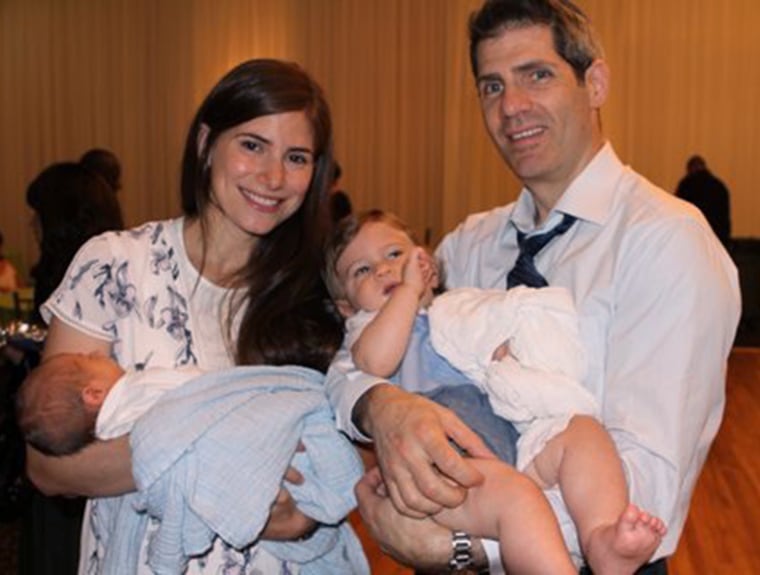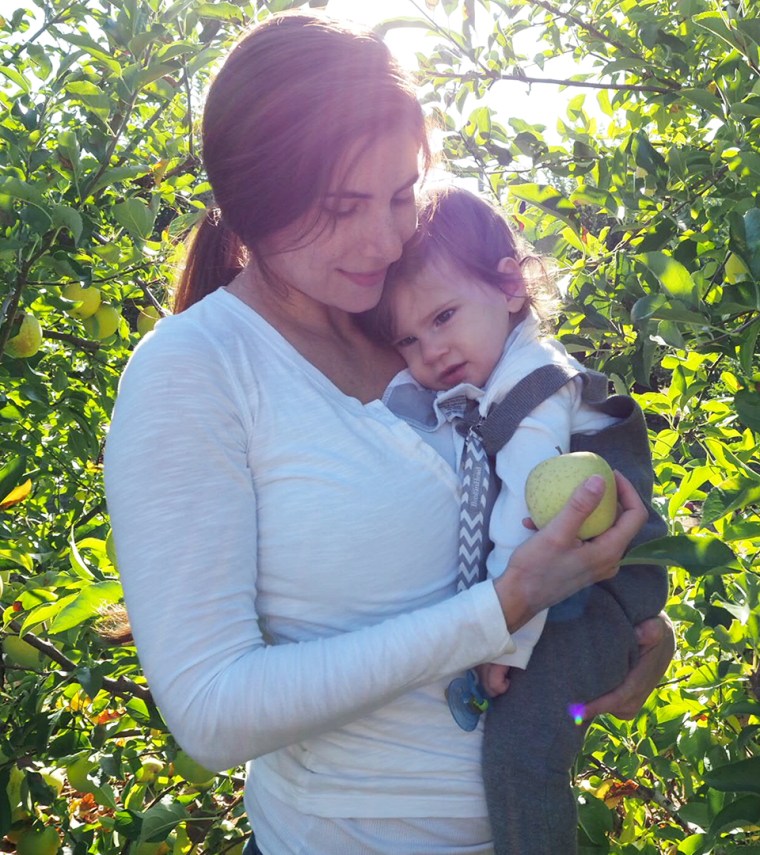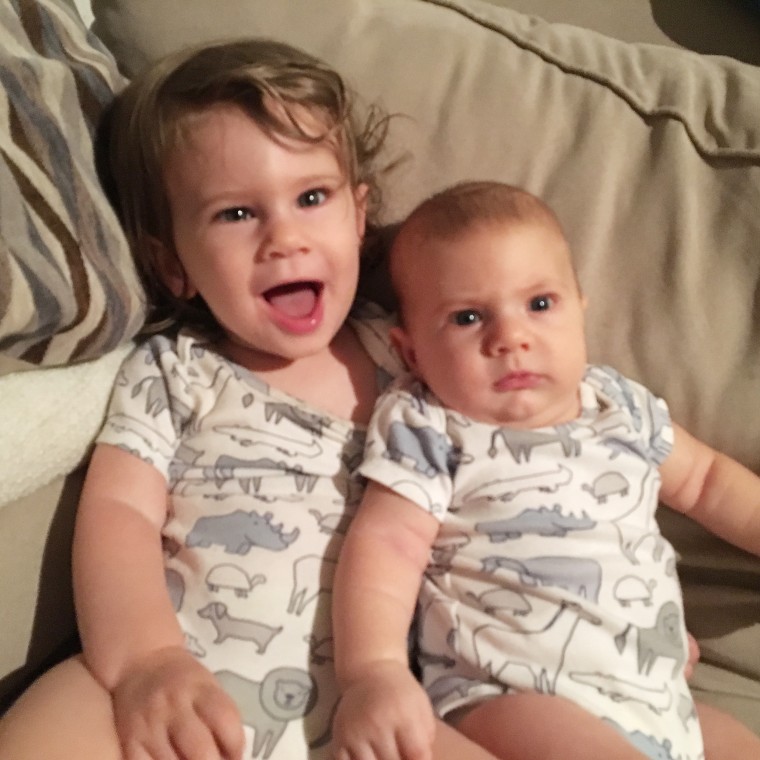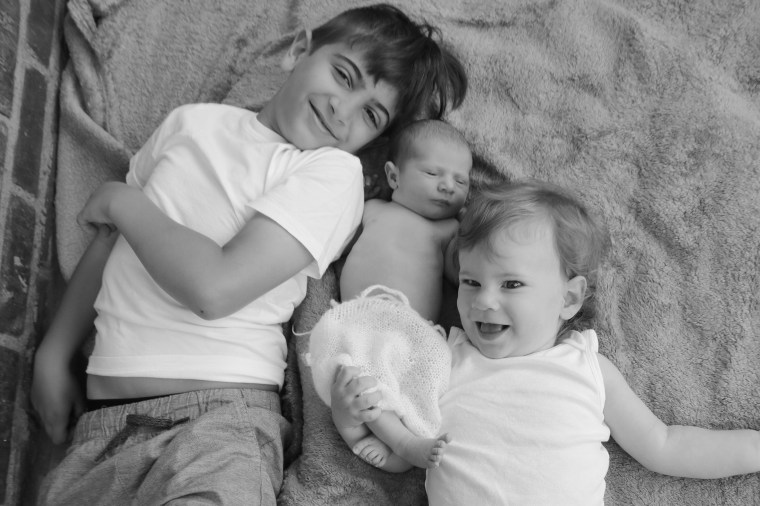When Jennie Landsman’s son Benny was 6 months old, she noticed he struggled to sit up, roll over or scoot like other babies. Worried, she took him to a neurologist.
“I started to get a little bit concerned when Benny wasn’t sitting up on his own,” Landsman, 33, of Brooklyn, told TODAY. “Up until then, he had been developing normally.”
The doctor assured her Benny was healthy and that some babies take their time to reach milestones. But after another month without progress, Landsman wanted a second opinion. The new doctor also told her not to worry. Tests revealed Benny experienced muscular problems with his eyes and nystagmus, or rapidly moving eyes. But the ophthalmologist agreed Benny seemed healthy.
Landsman felt frustrated. Even though the doctors said Benny was fine, she sensed something was wrong. Time passed and she gave birth to another baby, Josh. But she couldn’t escape her concern for Benny, who still had not met basic milestones.

“We thought it was some sort of brain damage. We didn’t know. We had a normal pregnancy, a normal birth, a normal development until six months,” she said.
Finally, Landsman took Benny to a third neurologist who ran blood and urine tests. That’s when the doctor discovered the presence of N-acetylaspartic acid (NNA) in Benny's urine, which meant he had Canavan disease, a rare genetic neurological condition. A missing enzyme causes the brain’s white matter to degenerate into a spongy substance and most children with it miss developmental milestones, suffer from cognitive disabilities, and die at about age 10.
“I had no clue how devastating it was,” Landsman said.

She was also stunned to learn she was a carrier for Canavan. Ten years earlier, she had undergone genetic testing and thought she was safe. The results said she wasn't a carrier of any genetic diseases common among the Ashkenazi Jewish population. But the test could have missed it or been a false negative, which is why she thinks it's important for women to consider genetic testing before having a baby — even if they had tests in the past.
Soon after, Landsman and her husband, Gary, met with a genetic counselor to confirm the diagnosis and they also learned that Josh, who was only a month old, also has Canavan disease.
“It was beyond what we could imagine,” she said. "I was completely in shock."
But Landsman figured there must be a simple treatment.
“They are missing an enzyme. I said, ‘OK, so when can we start giving them the enzyme?’” she recalled.
That’s when she learned the devastating prognosis.
“The doctors told us there is no cure. There is nothing you can do — just take them home and love them,” Landsman said.
For three days, she cried and started counting moments.
“I would hold my baby’s hand and I would cry. 'How many more minutes will I hold my baby’s hand for? How many more minutes will I see him smile?'” she said.
But she and her husband, Gary, 44, decided to fight. They started researching treatments and cures and stumbled upon a gene therapy that could treat Canavan. But it was stuck in the lab because of funding cuts. The lab told the Landsmans it needed $1.2 million to start developing the therapy. So the family decided to start a GoFundMe campaign to help.
“We reached out to people looking for help. We knew this was much bigger than us,” she said.
In four days, the campaign raised more than half of the $600,000 needed. The Landsmans feel overwhelmed by the outpouring of support.
“We are in shock and grateful,” she said.

The money will help Dr. Christopher Janson, a neurologist at the University of Illinois in Chicago, test a gene therapy on a small group of patients with Canavan to show that it works. This therapy will allow the brain to bolster myelin production, which is disrupted in kids with Canavan and leads to their poor outcome.
“We have a modest goal to help a few kids and show the therapy is effective,” he told TODAY.
Even though this treatment would help children with Canavan, it could be the foundation for research for treatments for other conditions.
“Some of the same approaches we are taking with Canavan can potentially be applied for Alzheimer’s,” he said.
While he has never met the Landsmans, he’s not surprised they are so determined.
“They are trying to help their own kids and help others. It is really fantastic,” he said.
Landsman says that Benny, now 17 months old, and Josh, 4 months old, bring joy to everyone who meets them.
"They are happy little dudes," Landsman said. "You can’t be sad when you are around them."

Everyone wants to help. Even Benny and Josh’s 7-year-old brother, Michael, has been searching for a cure.
“He started reading sci-fi books and coming to me with ways that they can fix their genes … He just wants to help,” Landman said. “It is heartwarming and heartbreaking at the same time.”
People interested in donating can do so here.